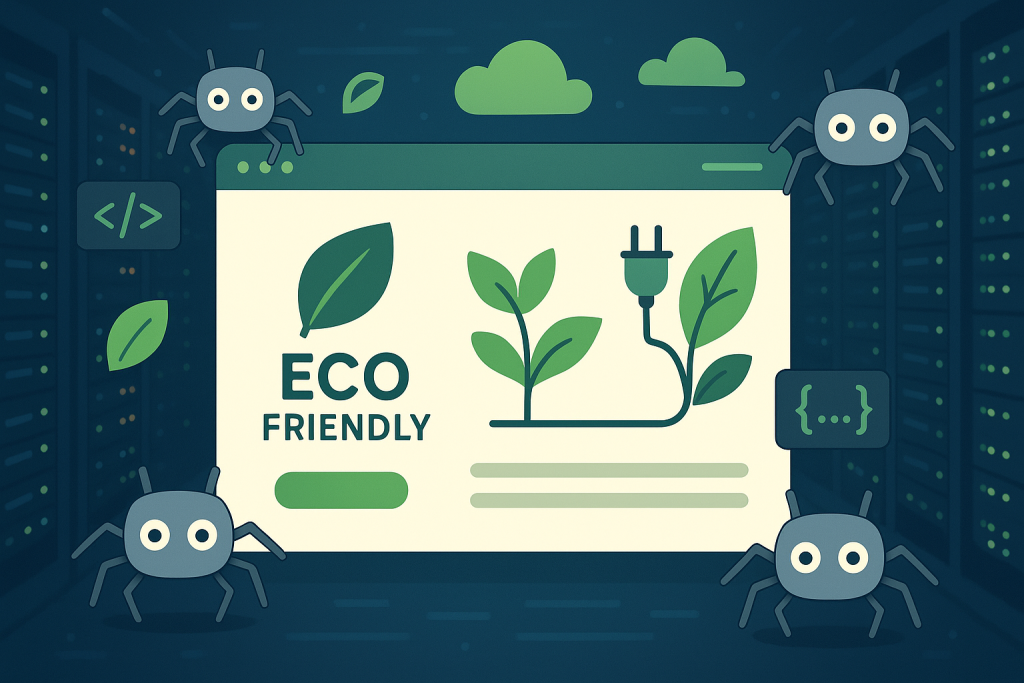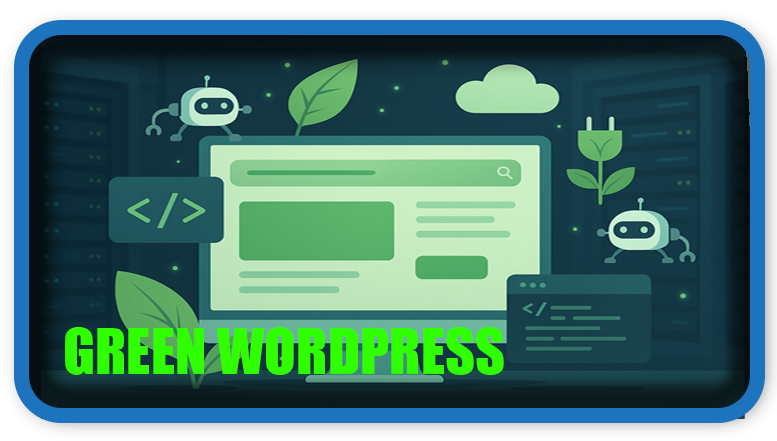⏲️ Estimated reading time: 3 min
Improve your website’s performance and reduce its environmental footprint with crawl optimization. Learn how to block unnecessary resources, reduce server load, and disable unused WordPress features to streamline your SEO and make your site eco-friendly.
🧠 What is Crawl Optimization?
Crawl optimization is the process of improving how search engines access and index your website. By directing crawlers only to the most important content, you reduce server strain, increase crawl efficiency, and boost SEO performance. Additionally, minimizing resource use helps lower your website’s carbon footprint, making it more environmentally responsible.

🌐 Why Crawl Efficiency Matters
Search engines like Google use bots (also known as crawlers or spiders) to index your website. These bots have a limited crawl budget per site. If bots spend time crawling irrelevant pages or unused WordPress resources, they might miss your most valuable content.
Efficient crawling means:
- Faster indexing of important pages
- Reduced server CPU and bandwidth usage
- Improved user experience through faster load times
- Greener hosting due to less energy consumption
⚙️ Common WordPress Features That Waste Crawl Budget
Out of the box, WordPress generates multiple URLs and feed formats that are often unnecessary:
- Author Archives:
example.com/author/username/ - Date Archives:
example.com/2024/06/ - Tag Pages:
example.com/tag/example/ - Feeds: RSS, Atom, comment feeds
- Search URLs:
?s=query - Attachment Pages:
example.com/your-image/
Search engines crawling these low-value pages can dilute your SEO and slow indexing of real content.
🛠️ How to Optimize Crawl Behavior in WordPress
1. Use a Clean robots.txt File
Here’s a recommended snippet for your robots.txt:
User-agent: *
Disallow: /wp-admin/
Disallow: /wp-includes/
Disallow: /wp-login.php
Disallow: /wp-json/
Disallow: /xmlrpc.php
Disallow: /?s=
Disallow: /search/
Disallow: /tag/
Disallow: /author/
Disallow: /category/
Allow: /wp-admin/admin-ajax.php
Allow: /wp-content/uploads/
This reduces unnecessary crawling and protects server performance.
2. Disable Unused WordPress Features
You can disable features that contribute to crawl bloat by adding the following to your theme’s functions.php:
// Disable emoji scripts
remove_action('wp_head', 'print_emoji_detection_script', 7);
remove_action('wp_print_styles', 'print_emoji_styles');
// Disable shortlinks
remove_action('wp_head', 'wp_shortlink_wp_head');
// Disable REST API links
remove_action('wp_head', 'rest_output_link_wp_head');
// Disable oEmbed
remove_action('wp_head', 'wp_oembed_add_discovery_links');
// Disable RSD/WLW
remove_action('wp_head', 'rsd_link');
remove_action('wp_head', 'wlwmanifest_link');
// Disable generator tag
remove_action('wp_head', 'wp_generator');
3. Turn Off Archives You Don’t Need
Using a plugin like Yoast SEO, you can disable:
- Author archives
- Date archives
- Tag indexing
These pages offer little SEO value unless you’re a large publisher.
4. Limit Pagination and Feed Exposure
Too many paginated pages or feed formats can result in crawl bloat. You can:
- Limit post pagination (
Settings > Reading) - Use
noindexfor feeds and pagination via SEO plugins
🍃 Environmental Benefits of Crawl Optimization
Every bot visit uses energy. By cutting unnecessary crawls, you:
- Lower your website’s energy demand
- Reduce data center processing needs
- Minimize environmental impact
Green hosting isn’t just about renewable energy it’s also about reducing what needs to be powered.
✅ Final Tips for Crawl Optimization
- Use Search Console to monitor crawl stats
- Audit crawl errors and unindexed pages
- Remove orphan content that’s not linked internally
- Use lazy load for images and videos to reduce initial resource usage
📩 Do you have questions or suggestions? Leave a comment or contact us!
🏷️ Tags: crawl optimization, WordPress SEO, robots.txt, eco-friendly web, site performance, disable WordPress features, crawl budget, remove feeds, SEO strategy, server optimization
📢 Hashtags: #CrawlOptimization, #WordPressSEO, #GreenWeb, #EcoFriendlyHosting, #RobotsTxt, #SpeedOptimization, #WebSustainability, #CleanCode, #SEO, #WPtips
Only logged-in users can submit reports.
Discover more from HelpZone
Subscribe to get the latest posts sent to your email.

